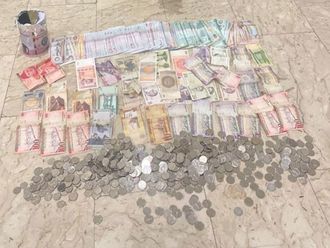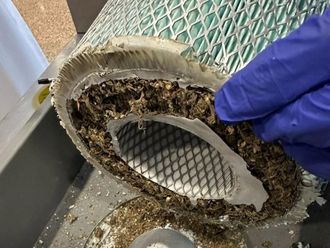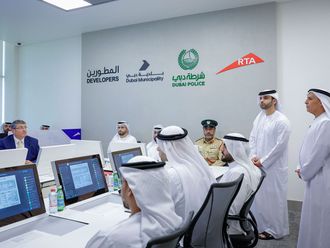Dubai: More than 316 cyber crimes were committed since the beginning of this year with seven cases involving industrial espionage which could reach up to millions of dirhams worth of losses for companies, a senior police official said.
In most cases of industrial espionage in Dubai, it happens when an employee leaks vital information such as data about clients to a competitor, said Major Saeed Al Hajiri, director of Dubai Police's combating cybercrimes department.
A recent case involves two collection agency employees at an investment company who leaked information and contact details of clients gradually to another company with the intent of creating their own company in the future using the stolen data, he said.
Their case has been referred to the public prosecution at an estimate of over Dh2 million worth of losses to the company that also lost the confidence of many of its customers.
These practices also involve real estate companies who bear great losses when they suddenly realise the loss of their clients due to industrial espionage.
Often a recently laid off or fired employee may be disgruntled enough to give out private information for a price. Alternately, some simply want to pad their income while still working for a company.
Penalties for a person giving away private information could include being immediately fired, and criminal charges. This is particularly the case when an employee signs confidentiality agreements, or is working on government projects for which he or she has security clearance. Another fairly common industrial espionage practice is hacking into a company's computer system in order to obtain private information. Some hackers might use the names or personal information about clients to quickly steal money from them.
Others use computer industrial espionage to steal information that might be sold to other companies. Some might use this method as a form of insider trading.
Father-son team
Another recent incident this year had a father and his son arrested and referred to public prosecution over seven cases. They took advantage of their job by using their clients' personal and confidential bank information for their personal use or by trading it.
The father had a car leasing company and when he requested credit card payment from the car renter, his son would swipe the card in a machine that can read information on it which could be used to withdraw money or pay bills online.
The son would sometimes pay bills for certain clients electronically using the information from one of the credit cards while getting the payment in cash from the client.
Cyber inspection
Major Al Hajiri said the department does not only work on cases but also as a monitoring and preventing agent to potential crimes that are picked up through their cyber inspection. Through their inspections they have stopped a number of children and teenagers committing illegal activities. The department contacts their parents to warn them of these activities which mainly involve hacking other people's computers and using information and pictures to manipulate or harm the victim.
"They are childish acts but few are becoming quite serious and sophisticated. Children nowadays are technology nourished individuals who can use this tool in a wrong manner," said Major Al Hajiri.
No cases have been opened against these teenagers but by studying the matter, many of them were coerced or manipulated by other internet users from different places to hack computers.













